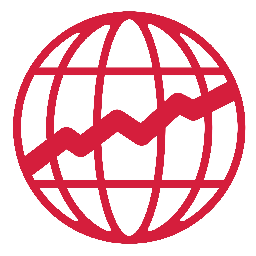March 7, 2014 – Sarah Weiner
This semester, a LIDS team supervised by Orrick LLP is completing a project for Qorax Energy, a renewable energy social impact firm focused on bringing international power engineering expertise to the Somaliland electricity market. I recently spoke with C. Nicolas Desrosiers, a co-founder of Qorax about his experience starting a social enterprise, the legal challenges he has faced, and how the LIDS team will be helping him this semester.
Can you briefly explain what led you to start Qorax Energy?
I had spent the year before starting Qorax working at a university in Somaliland and, for a short time, at Somaliland’s Ministry of National Planning & Development. In the course of my year there, I saw many challenges and opportunities but the most striking was the energy crisis. Somalilanders pay some of the highest prices for energy in the world, often more than ten times what consumers in the U.S. pay, and they also have incredibly high unemployment. I developed the idea for Qorax Energy with Nigel Carr and Abdishakur Mohamoud. Our mission is to reduce this high expenditure in Somaliland and other areas where electricity markets are inefficient. Together, we saw an opportunity to dramatically lower energy costs for consumers, deliver high returns for investors, and create local employment opportunities in a new sector.
Another major motivation was dissatisfaction with international development as it is typically practiced. Charity-based models often have unintended depressive impacts because giving away or heavily subsidizing goods and services inhibits the ability of local entrepreneurs to compete. I saw many development agencies bring in highly paid foreign contractors to do jobs Somalilanders could perform just as well – if not better, with their intimate understanding of local conditions. We were determined to build Qorax as an alternative to this model.
What do you think is the biggest legal challenge to working in a frontier market like Somaliland?
Somaliland is a special case because it lacks international political recognition. Finding the correct ways to manage the movement of money is a primary concern. Foreign investment in modern Somaliland is a relatively new phenomenon, so there are few precedents, particularly for international start-ups like Qorax. There is significant investment underway in multiple market sectors from countries like Kuwait, Turkey, China, and South Africa, but no commercial projects from Western investors. Creating the correct channels to manage both the injection and repatriation of capital to minimize perceived risk is a big challenge.
Nonetheless, it’s the challenges like these that are precisely what attracted us to deploy Qorax’s inaugural project in Somaliland. We see a big potential to catalyze sustainable growth in the energy sector – an opportunity that certainly exists elsewhere on the continent. We are confident that we can build on our success in Somaliland by providing similar services elsewhere. So far, we have received a great deal of encouragement and support from Somalilanders.
Last time we spoke, Qorax had a lot of exciting new initiatives on the horizon. Can you talk a little more about how Qorax will be growing in the next few years, and specifically, how the work of the LIDS team will help the company with that growth?
Qorax completed the construction of its training center in Hargeia this past December, and classes for the initial cohort of 50 students began in January. When they graduate in August, Qorax will support them with access to capital, logistical support, and quality control so that they can operate microenterprises selling clean tech consumer products, such as solar lanterns and related products.
Now that this ball is rolling, we have been actively expanding our operations beyond Somaliland. Our long-term goal is to create a network of energy and entrepreneurship centers. Because our model is partnership-based, each of the in-country subsidiaries is a joint venture with a local educational institution or labor organization. Selecting the correct structure and managing the precise legal and governance relationships between these entities and the U.S. entity is complicated. This is of critical importance since Qorax focuses on frontier and post-conflict markets, where the local foundation for legal institutions and recourse may be weak. The LIDS team is playing an integral role in helping us address these critical legal and structural questions.
LIDS will also play an integral role in advising us on the creation of a non-profit arm called Qorax Foundation, which will focus on research and education related to energy access issues in decentralized contexts.
As someone coming from an urban planning perspective, what do you think is the role of lawyers in helping companies like Qorax Energy? In international development more generally?
A lot of the coursework in my urban planning program at the Massachusetts Institute of Technology is centered on creating socially-optimal policies. The legal structures involved in robustly institutionalizing these policies for the long term gets less attention.
More specifically, as part of our alternative to traditional international development approaches, we hope to refine our multi-stakeholder joint venture model in order to create businesses in frontier markets with international resources. Identifying the right legal model for this arrangement is of primary importance.
For more information on Qorax, please visit www.qoraxenergy.com.
You can follow Qorax Energy’s progress on its Facebook page: www.facebook.com/qoraxenergy.

